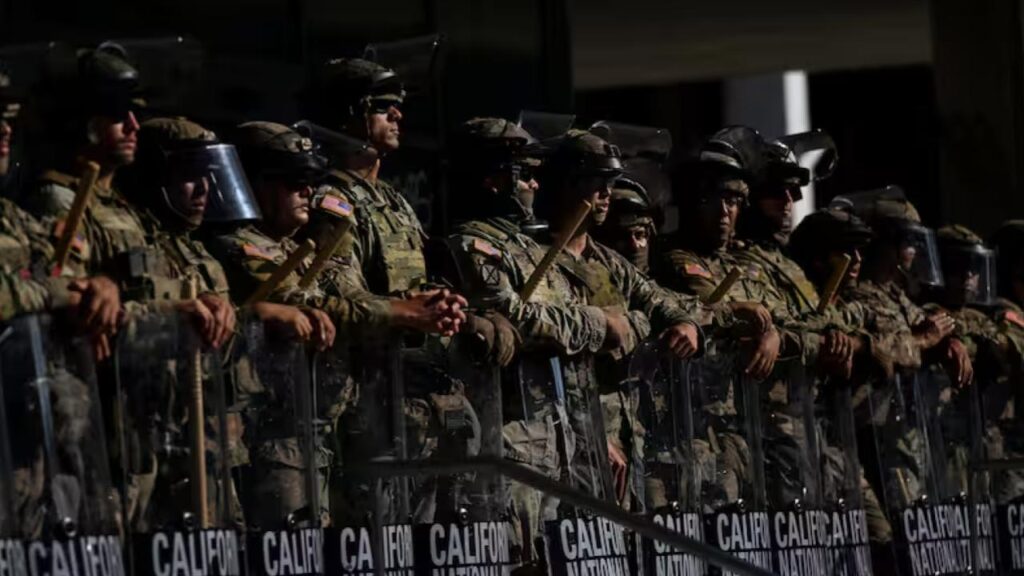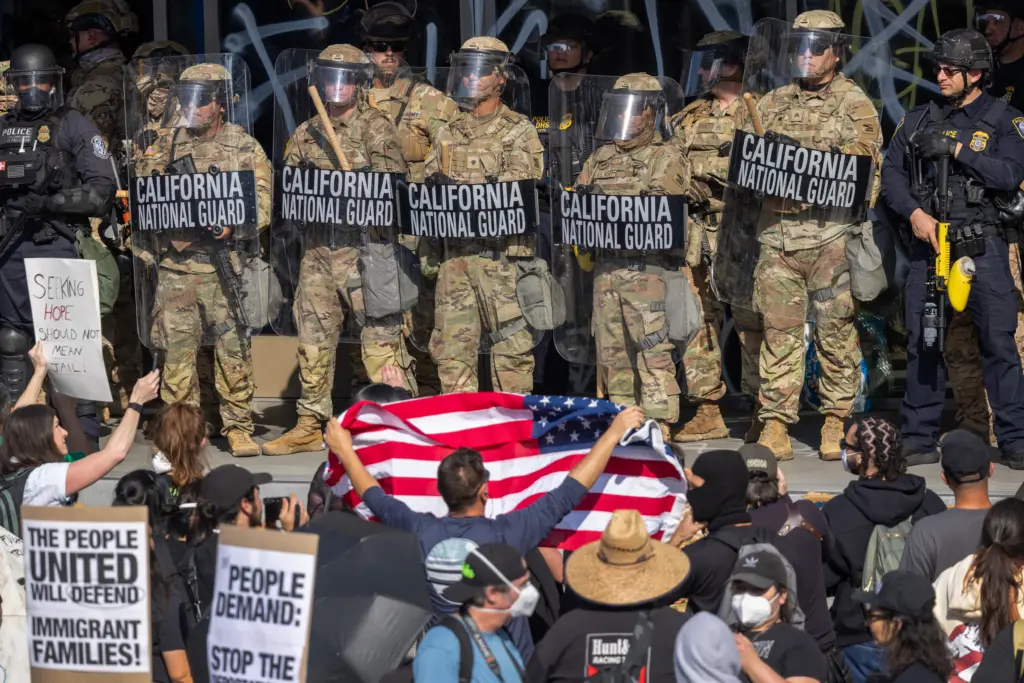In a move that could dramatically expand presidential military authority, a federal appeals court appears ready to back former President Donald Trump’s deployment of the California National Guard to Los Angeles — without approval from Gov. Gavin Newsom.

The legal showdown between state and federal power isn’t just about LA. It could fundamentally redefine how—and when—presidents can use state militias without local consent.
Appeals Court May Hand Trump Control of LA National Guard
What happens in LA might not stay in LA. If the court endorses Trump’s move, it could open the door for presidents of either party to deploy state forces in domestic settings—no questions asked. That’s not just a tactical shift. It’s a constitutional reckoning.
What’s Going On?
In early June, Trump—who is seeking reelection—ordered the National Guard into Los Angeles to address what he called “violent breakdowns of law and order” tied to immigration protests. Gov. Newsom pushed back, arguing the protests were peaceful and that he never consented to military deployment.
California quickly sued, claiming Trump had no constitutional grounds to activate the Guard under the Insurrection Act—a rarely used 1807 law that allows presidents to quell rebellion or enforce federal laws if local authorities can’t.
The Ninth Circuit Court of Appeals heard arguments last week. And based on the judges’ questions and tone, experts say the court seems inclined to rule in Trump’s favor.
What the Judges Are Weighing
Two Trump appointees and one Biden appointee sit on the panel. They referenced the nearly 200-year-old Supreme Court case Martin v. Mott, which broadly supports presidential discretion in using the military during crises. Trump’s lawyers argue that once the president invokes this power, courts and governors have no say.
Gov. Newsom’s team warned of a dangerous precedent. “If this stands, any president could send troops into a state—no emergency required, no checks in place,” said California Solicitor General Aimee Feinberg.
The judges challenged both sides but seemed to lean on the idea that national security judgments belong to the commander-in-chief, not to federal courts.
Why This Case Could Reshape the U.S. System
This case goes far beyond LA. Legal experts say it could mark the biggest change in civil-military relations since the 1960s civil rights era, when President Johnson federalized state troops to enforce desegregation.
If Trump wins, it could:
- Allow future presidents to override governors in politically tense moments
- Blur the line between domestic law enforcement and military action
- Potentially invite more aggressive uses of the Guard in future crises
“Presidents already have a lot of power when it comes to the military,” says Mary Dudziak, a legal historian at Emory Law. “But this case could expand that power into the domestic sphere in a way we haven’t seen in generations.”

The Bigger Picture: A Federalism Flashpoint
At its core, this is a battle over federalism—the balance of power between Washington and the states. While the Constitution gives presidents the right to “call forth the militia,” that’s typically done with governors’ cooperation.
But legal scholars say the Insurrection Act is vague. It doesn’t clearly require a governor’s consent, nor does it define what counts as an insurrection.
“This law was written when Andrew Jackson was still a general,” said constitutional scholar Laurence Tribe in a recent CNN appearance. “We’re using 19th-century language to make 21st-century military decisions.”
What Happens Next?
The panel’s decision could come any day. If they side with Trump, California is expected to appeal either to the full Ninth Circuit or directly to the Supreme Court. A fast-track ruling could land on the high court’s docket before the November election.
Expert Take
I’ve covered National Guard deployments and presidential power for years, and this case hits differently. The stakes are bigger. The legal lines are blurrier. And the timing—in an election year—is explosive. The court isn’t just deciding who controls troops in LA. It’s deciding who controls the rules.
FAQs
Why didn’t Gov. Newsom approve the deployment?
He said there was no emergency and that the LAPD had not asked for assistance. He called the move “a political stunt.”
What is the Insurrection Act?
It’s a law from 1807 that lets the president use military force to stop rebellion or enforce laws—without needing Congress or a governor’s permission.
Could this go to the Supreme Court?
Very likely. If the Ninth Circuit sides with Trump, California is expected to appeal quickly.






